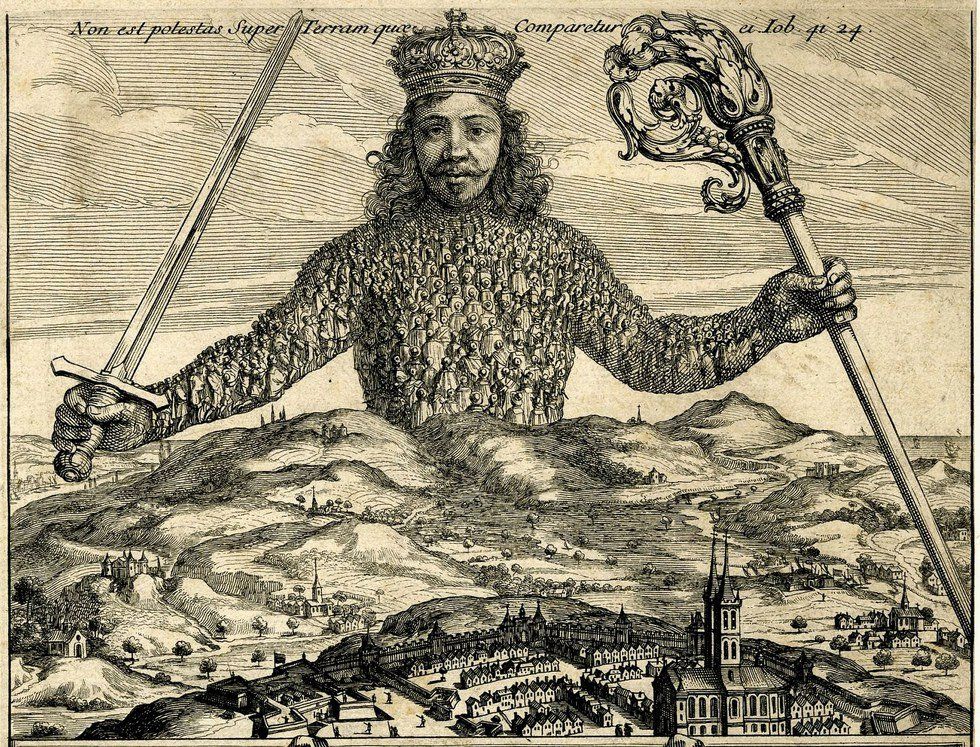Imagine–if you will–a world in which there is no such thing as a government; no higher body, no politics, no bureaucracy, just people going about as they usually would without any higher power telling them otherwise. How do you believe those people would act? The question of government is one that asks what humans would be without any civil order, would we be better or worse off without it? Are we even any better with it?
The word “government” nowadays invokes a negative image in people’s minds. A group of suited up bigwigs all sitting around a table or in courts deciding how to plunder the people of their money and how to curtail their liberties even more; a crude image, yes, but one that most people wouldn’t think about sooner or later. A lot of governments nowadays are rife with graft, corruption, human rights violations, and a blatant disregard for the well-being of their own people. However, according to 17th-century English philosopher, Thomas Hobbes, a government is necessary in society, no matter what.
In his monumental work, Leviathan, Hobbes wrote that governments are what keep people in check and civilizations alive. In the work, Hobbes introduced what is called, “the natural state of man,” in which he described the life of humans without government as “nasty, brutish and short.” When those humans decided that enough was enough, they sacrificed some of their freedoms and powers to ensure that order can be kept and peace be maintained. This entity formed the backbones of governments for ages to come and is known only as the Leviathan. The Leviathan ensures order, law and preservation with a sword and any means necessary to keep the public at peace. To Hobbes, no government is at fault; as the absence of any government, good or bad, is far worse than if there were no government at all–or so Hobbes thought…
Almost a century later, Swiss-French philosopher, Jean-Jacques Rousseau argued that without governments, the natural state of man is one of peace and harmony. In 18th-century Europe, the Enlightenment was implanting itself in the minds of European philosophers such as John Locke, Baron von Montesquieu, Voltaire, and of course, Rousseau. In the wake of the American Revolution and before the French Revolution, Rousseau argued that humans are better off with as little government as possible. Even if there need be a government, there must exist a social contract between the government and its people; meaning that in order for the people to respect the government, the government must respect its people. A government does not need to be oppressive nor censoring. Instead, it must be big enough to get the job done and ensure that its people are happy and its coffers are full.
But the game of politics is akin to walking across a minefield; one wrong move and a political society could end a massive and deafening bang. Especially nowadays, since there is such a diverse amount of opinions originating from the left right and center that governments are struggling in an attempt to keep all sides appeased. As history has taught us, when one government falls another one is put in its place…although there is a brief period of transition, rarely has the transitional process been peaceful, and is indicative as to why we need governments.
For example, take the fall of Rome: after the Roman empire collapsed and Roman authority was no more, Europe was left in a period of sieges, wars, invasions, and all kinds of strife from groups all around. Needless to say, this was a bloody period where little was accomplished in the way of achievement or prosperity and was appropriately named the “Dark Ages.” The people of that time were so desperate for leadership and government that primitive forms of government took place amongst different regions in what became known as “feudalism.”
Despite how sloppy and makeshift these feudal governments were, the fact that they existed and that people were heavily reliant upon them showed not only how much a government is needed, but the lengths that the people will go to for any sort of government. Hobbes is correct in saying that we need a strong, if not any, form of government (also take a look at the government of Poland by the late 18th-century, South America by the mid-19th-century, and various African and Asian countries post-independence) however, a government also needs to have a little wiggle room for people to express themselves in a constructive and creative manner.
In conclusion, the short answer is yes, we do need governments, but the ultimate question lay in how people should be governed? Countless theories from philosophers over the ages have provided many different kinds of answers, yet to what degree a government should be liberal or strict with its policies remain the underlying problem. Perhaps governments have grown independent of their people? Perhaps people are too dependent on their government? Or, perhaps, within the nuances of politics there remains the secret to good governments that we haven’t found out yet? But if the previous centuries of war, bloodshed, and suspended freedoms and liberties haven’t brought forth any answers, then maybe, we may never know.





















